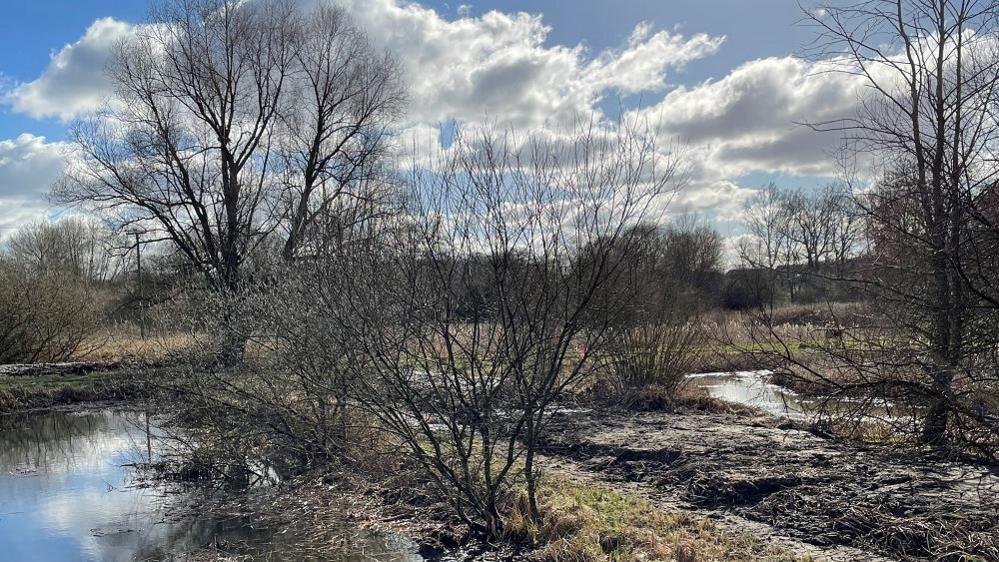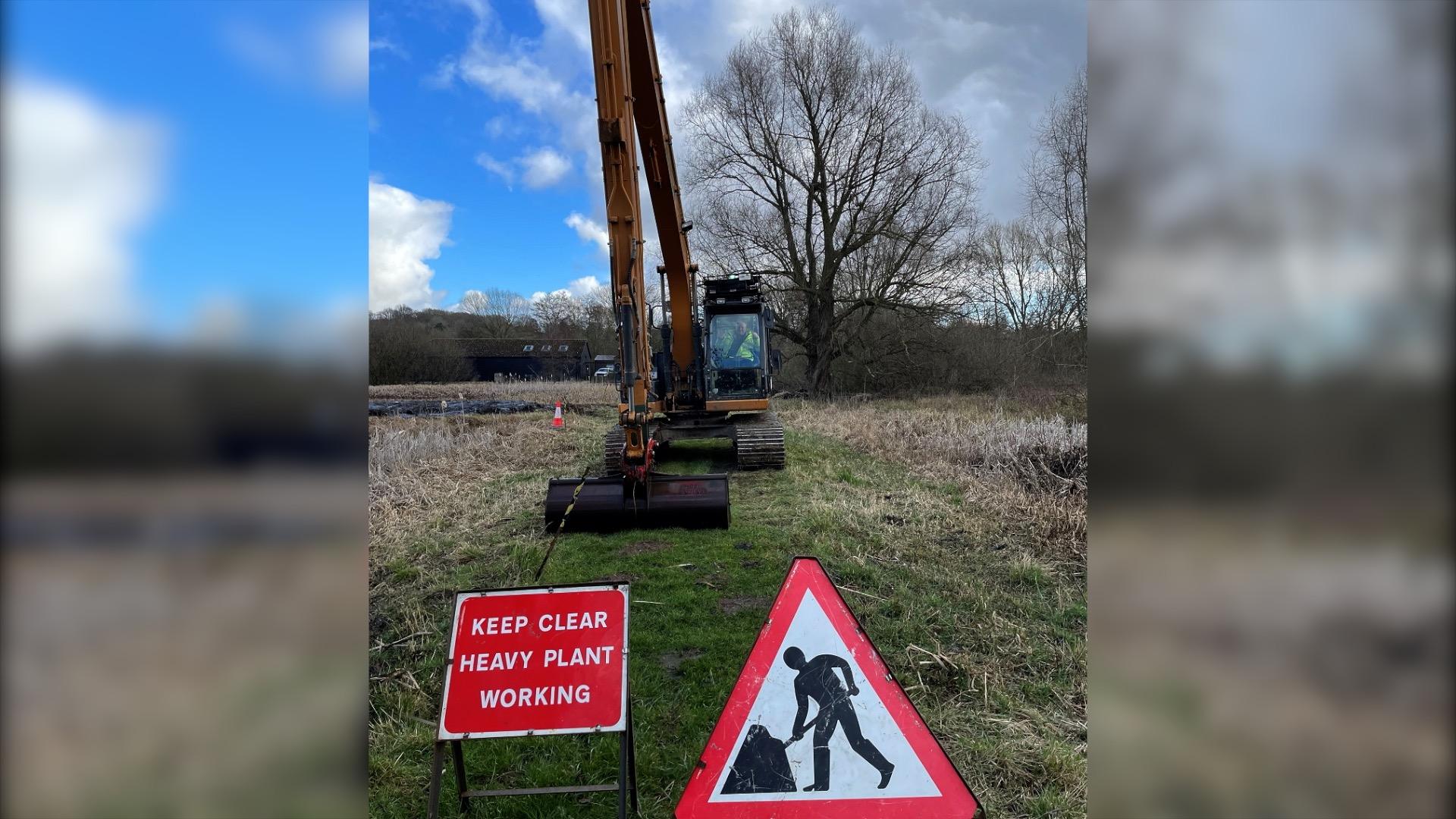Project hopes to boost biodiversity at ponds

Kate Warwick, from the EA, said ecology benefits were "at the heart" of the project
At a glance
Costessey Fish Farm in Norwich is home to otters, water voles and bats
Project managers tried to increase the numbers of Marsh Carpet moth and the endangered Black Poplar tree
The Environment Agency said it was excited to see the results
- Published
Conservationists have completed a project to boost biodiversity at a fish farm in Norwich.
The Environment Agency (EA) carried out vegetation management and pond restoration work at Costessey Fish Farm.
The project managers want to increase the numbers of the nationally scarce Marsh Carpet moth and Britain's most endangered tree species, the Black Poplar.
An EA spokesperson said she was "excited to see the difference this restoration makes".

The restoration work included the removal of silt and vegetation in two of the largest ponds
Costessey is made up of 16 ponds home to otters, water voles, bats and various invertebrates.
It is one of the few sites in the UK where more than one Marsh Carpet moth has been found.
During the work, the EA said it created a Black Poplar nursery, external using "propagated cuttings" from other trees in the species in Norfolk.
The team also removed accumulated silt and vegetation from two of the largest ponds, creating more open water for invertebrates such as dragonflies and damselflies.
Kate Warwick, a technical specialist for the EA, said: "The benefits for ecology were at the heart of everything we did, and we are excited to see the difference this restoration makes to species numbers."
Find BBC News: East of England on Facebook, external, Instagram, external and Twitter, external. If you have a story for us, email eastofenglandnews@bbc.co.uk, external